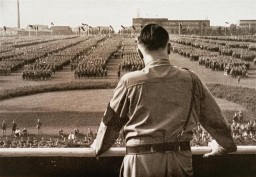You searched for: b%C3%B3ng%20%C4%91%C3%A1%20t%E1%BB%B7%20l%E1%BB%87%20k%C3%A8o%20nh%C3%A0%20c%C3%A1i%E3%80%900242.com%E3%80%91k%C3%A8o%20nh%C3%A0%20c%C3%A1i%20tr%E1%BB%B1c%20tuy%E1%BA%BFn
<< Previous | Displaying results 341-350 of 412 for "b%C3%B3ng%20%C4%91%C3%A1%20t%E1%BB%B7%20l%E1%BB%87%20k%C3%A8o%20nh%C3%A0%20c%C3%A1i%E3%80%900242.com%E3%80%91k%C3%A8o%20nh%C3%A0%20c%C3%A1i%20tr%E1%BB%B1c%20tuy%E1%BA%BFn" | Next >>
-
Eva Miodelska
ID CardEva was the oldest of four children born to a Jewish family in the central Polish town of Lipsko, about 30 miles southeast of Radom. The family lived at #12 Casimirska Street and Eva attended a private Jewish primary school. Eva's father owned a factory that produced shoes made from leather and cork. 1933-39: In the early 1930s Eva began secondary school in Zwolen, a town about 20 miles to the north. In 1936 her father left for Argentina to settle the estate of his deceased sister. For the two years he…
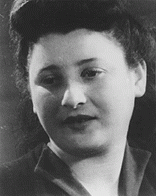
-
Mass Shootings at Babyn Yar (Babi Yar)
ArticleAt Babyn Yar in late September 1941, SS and German police units and their auxiliaries perpetrated one of the largest massacres of World War II.
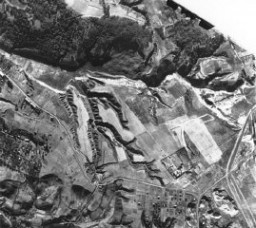
-
Susan Bluman describes the German invasion of Poland
Oral HistorySusan was 19 years old when Germany invaded Poland in September 1939. Her boyfriend, Nathan, was in Lvov when the Soviet Union occupied eastern Poland. Nathan sent a guide to Warsaw to bring Susan to the Soviet zone of occupied Poland. Her parents reluctantly agreed after Susan promised to return to Warsaw within two weeks. Upon her arrival in Lvov, Susan married Nathan. The couple then fled across the Lithuanian border to Vilna, where they stayed for a year. They received a visa for transit through Japan…
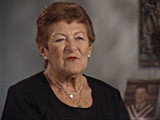
-
Joseph Stanley Wardzala describes conditions at the forced-labor camp in Hannover
Oral HistoryJoseph and his family were Roman Catholics. After Germany invaded Poland in 1939, roundups of Poles for forced labor in Germany began. Joseph escaped arrest twice but the third time, in 1941, he was deported to a forced-labor camp in Hannover, Germany. For over four years he was forced to work on the construction of concrete air raid shelters. Upon liberation by US forces in 1945, the forced-labor camp was transformed into a displaced persons camp. Joseph stayed there until he got a visa to enter the…
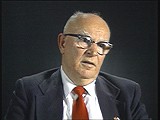
-
Drexel Sprecher describes war-damaged Nuremberg
Oral HistoryDrexel Sprecher was educated at the University of Wisconsin, the London School of Economics, and at the Harvard School of Law before receiving a position at the US Government's Labor Board in 1938. He enlisted in the American military after the United States declared war on Germany, and was posted to London. After the war, Sprecher served as a prosecutor of Nazi war criminals at the Nuremberg trials.
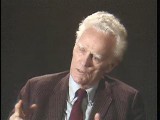
-
Historian Peter Black describes researching evidence for an OSI case
Oral HistoryIn the 1980s and 1990s, historian Peter Black worked for the US Department of Justice Office of Special Investigations, as part of a team tracking and prosecuting suspected war criminals. Black later served as the Senior Historian at the United States Holocaust Memorial Museum.
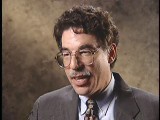
-
Third Reich
ArticleThe “Third Reich” is another name for Nazi Germany between 1933-1945. Learn more about life under Nazi rule before and during World War II.
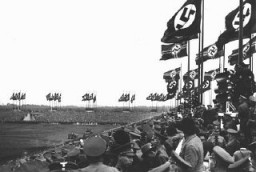
-
Le Chambon-sur-Lignon
ArticleFrom 1940 to 1944, Le Chambon-sur-Lignon and neighboring villages provided shelter to some 5,000 people, among them Jews fleeing persecution.
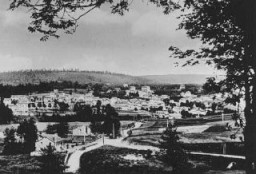
-
Political Prisoners
ArticleHitler's political opponents were the first victims of systematic Nazi persecution. They were incarcerated without trial and under conditions of great cruelty.
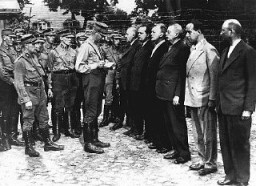
-
Adolf Hitler
ArticleAdolf Hitler, leader of the Nazi Party, aimed to eliminate Europe's Jews and other perceived enemies of Nazi Germany. Learn more.
